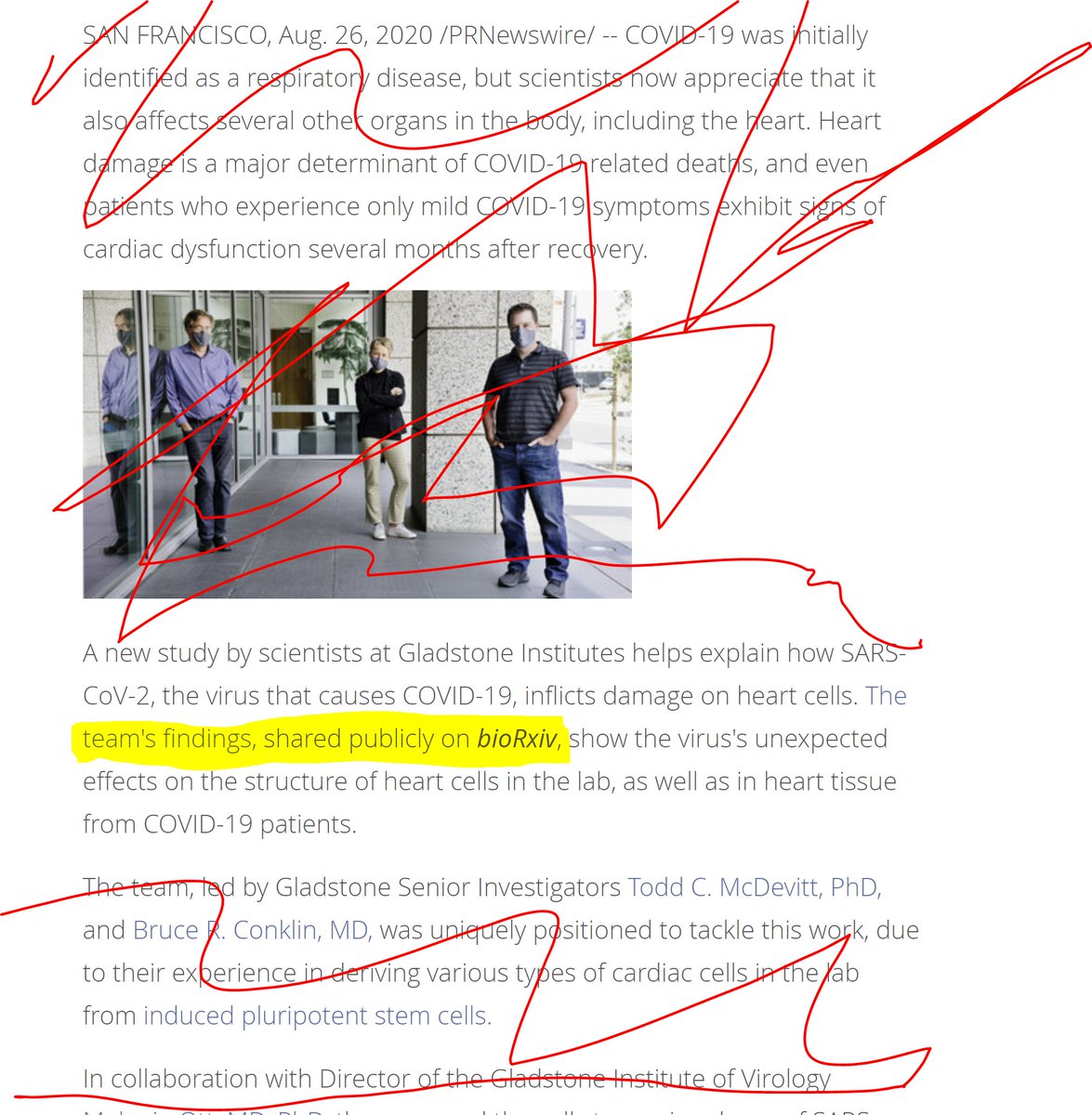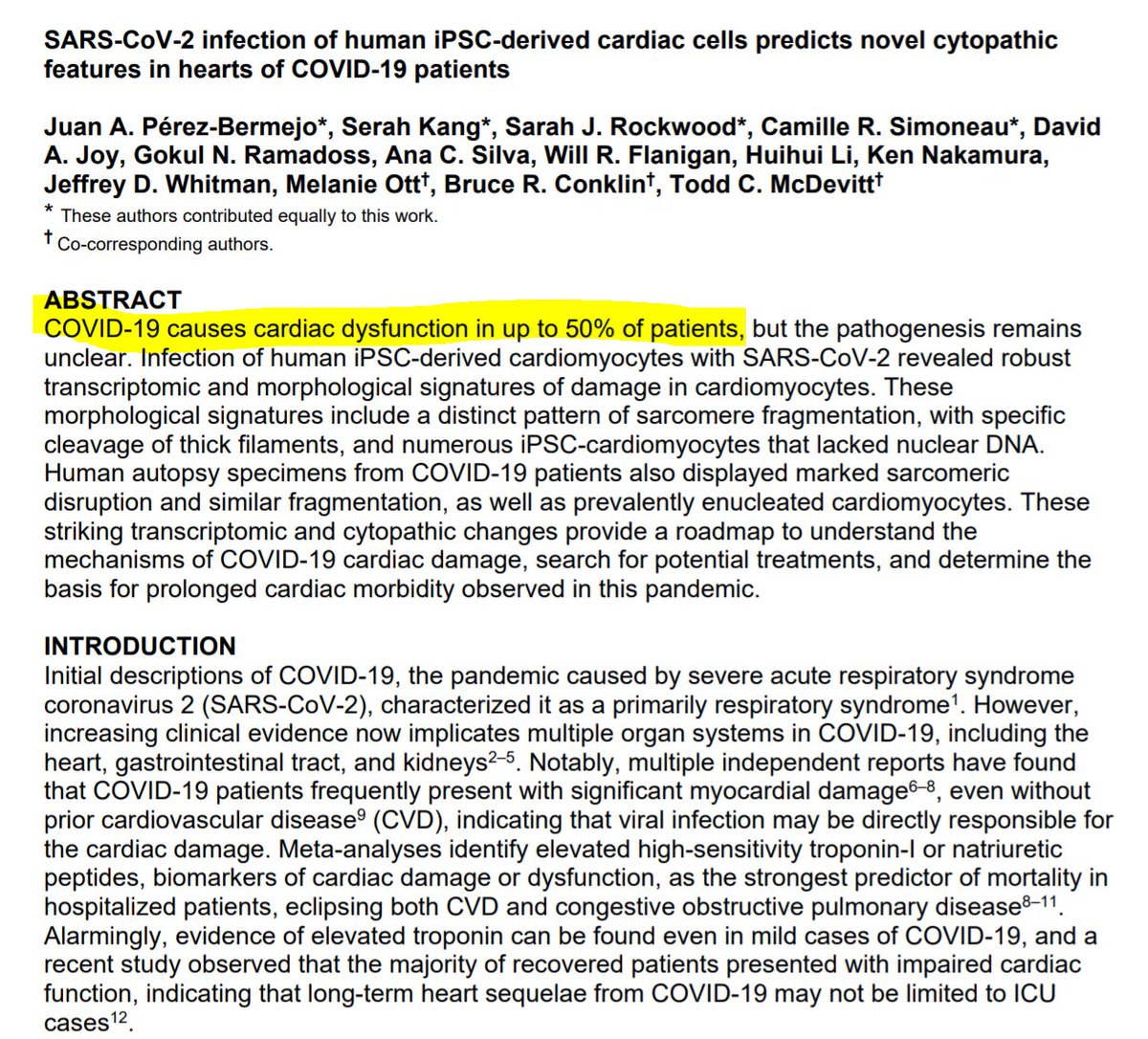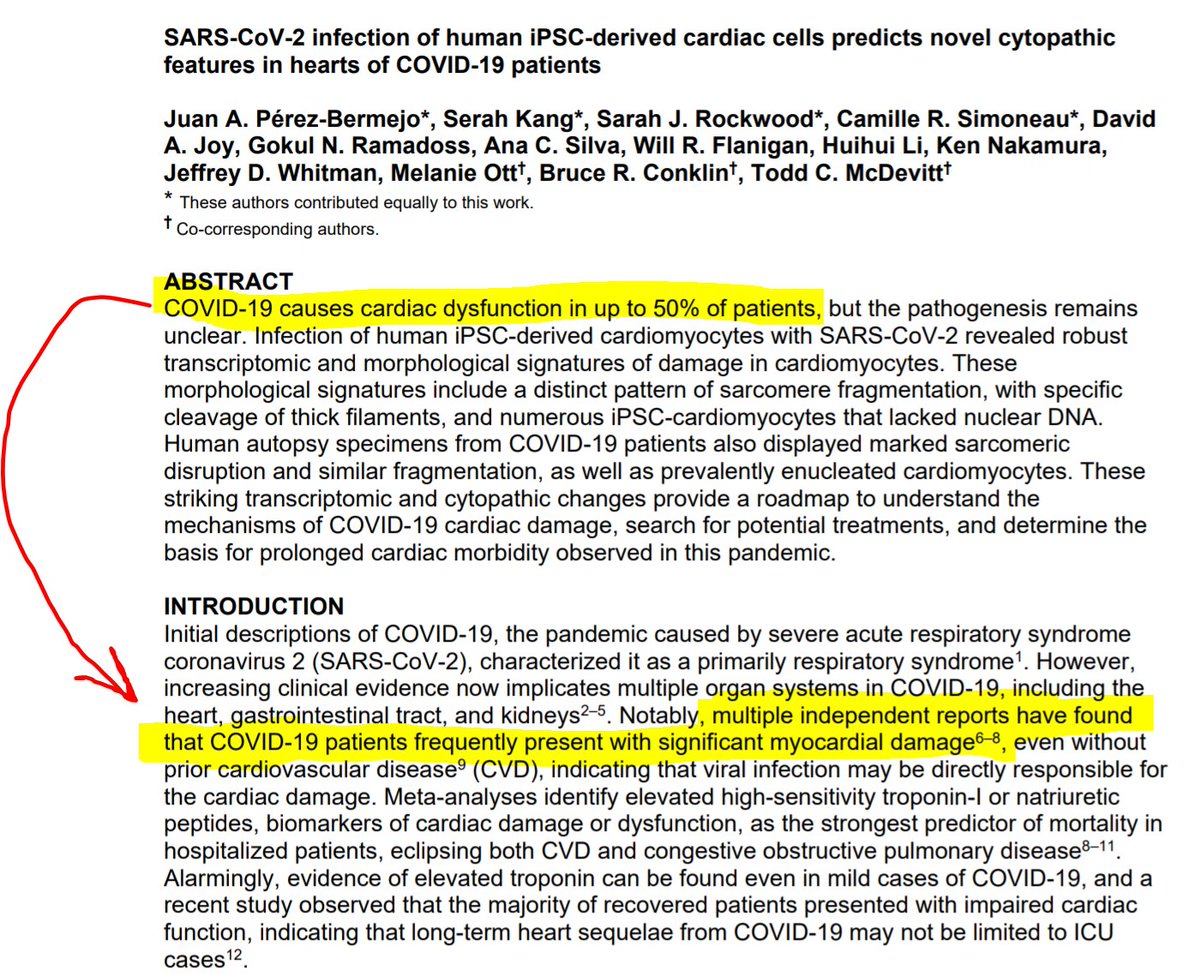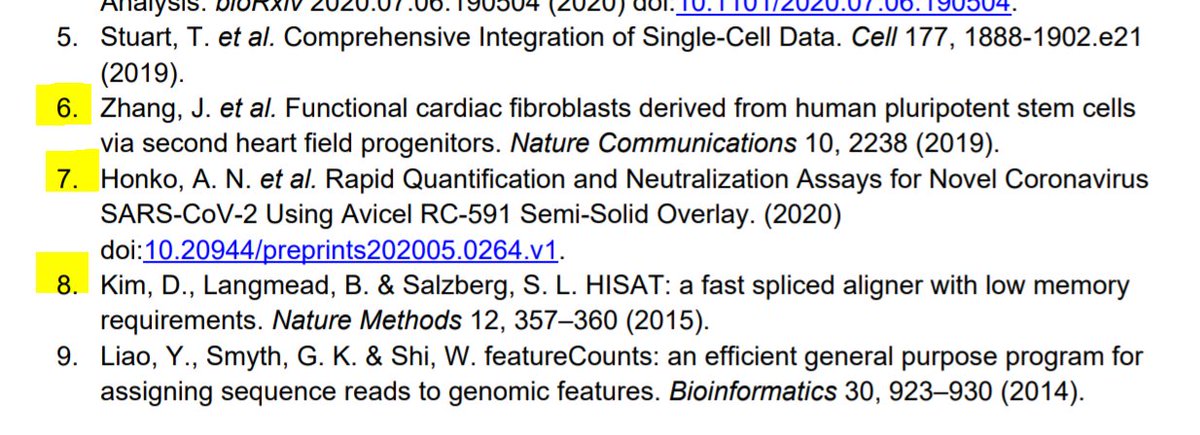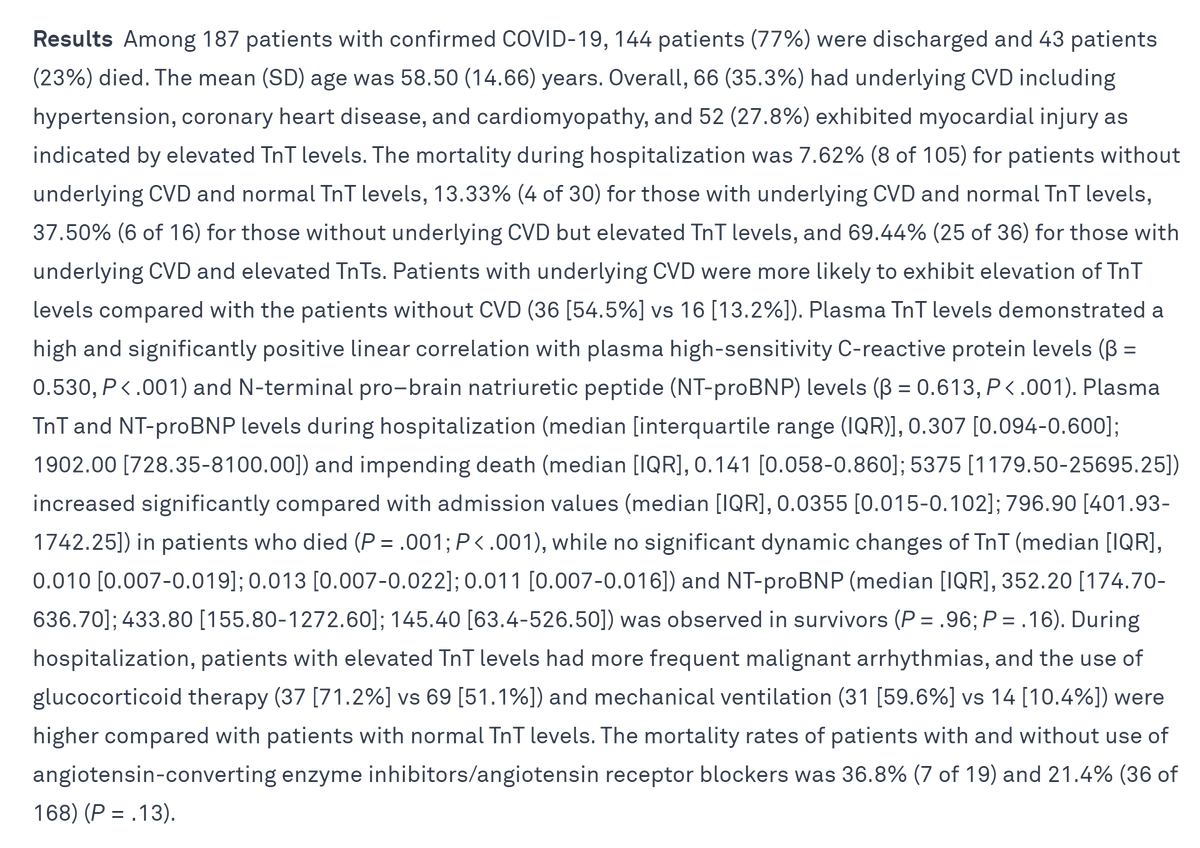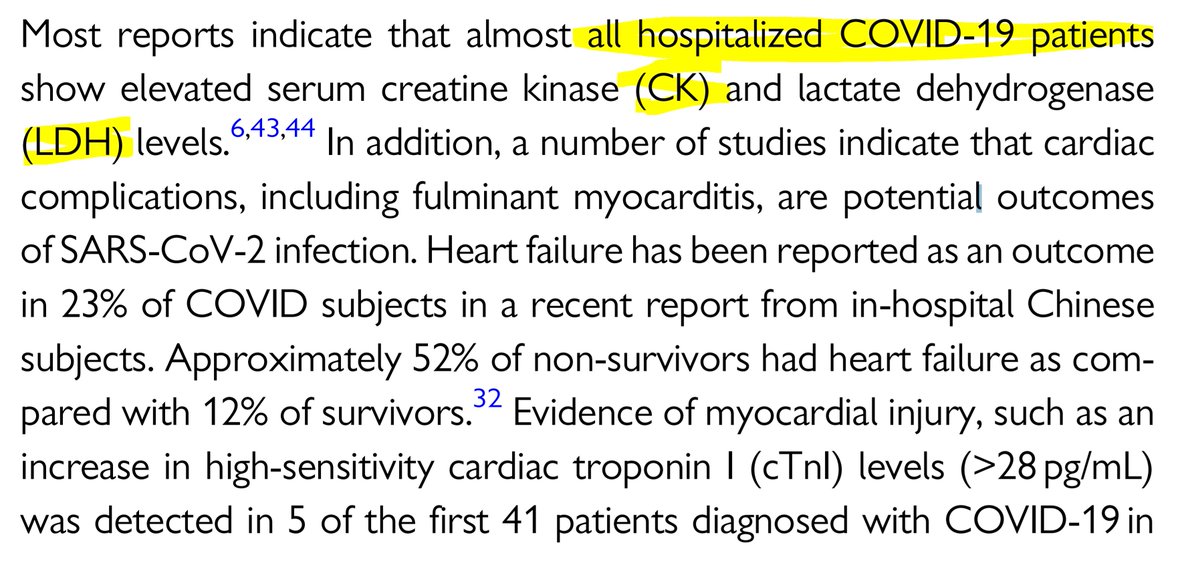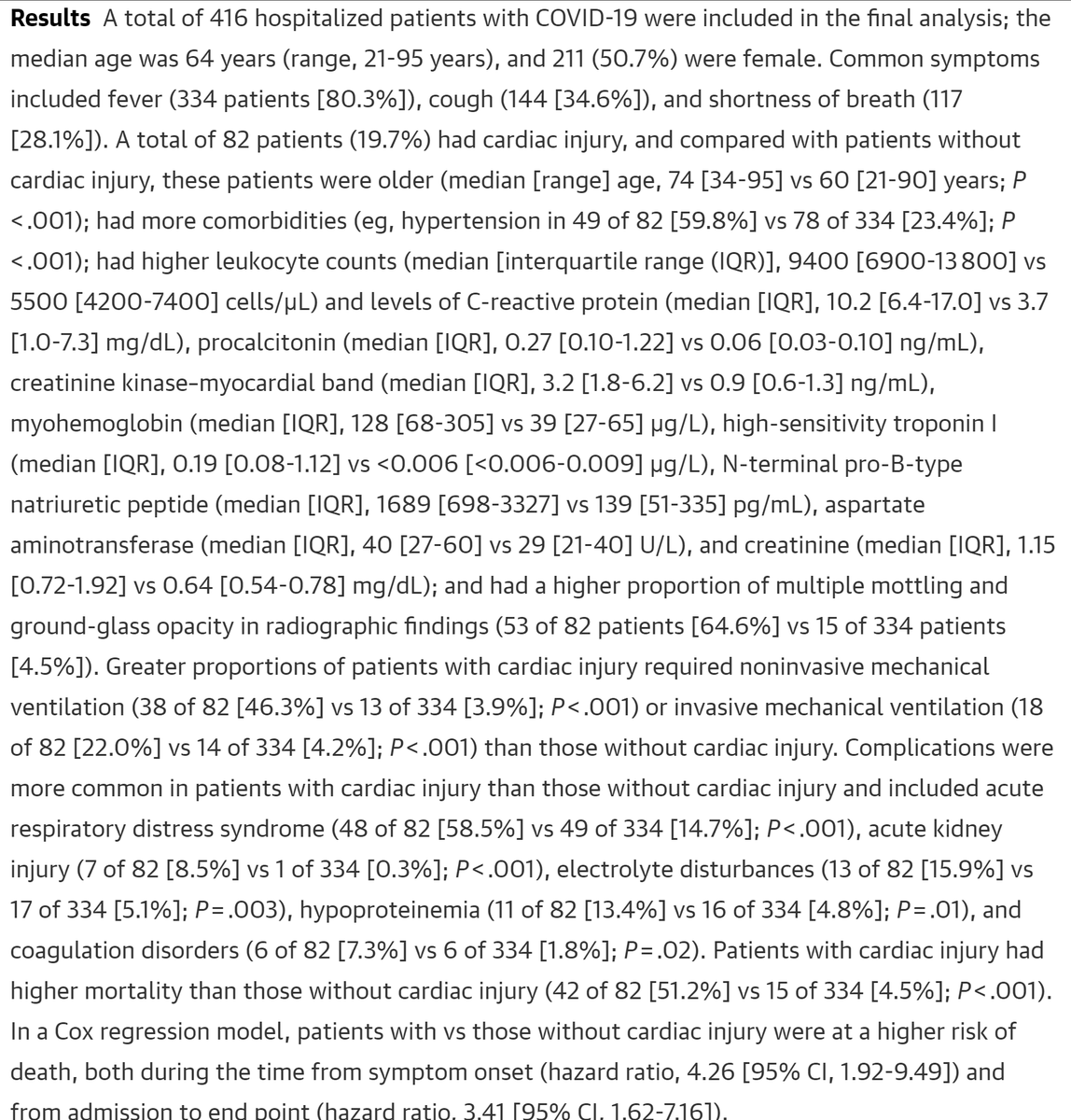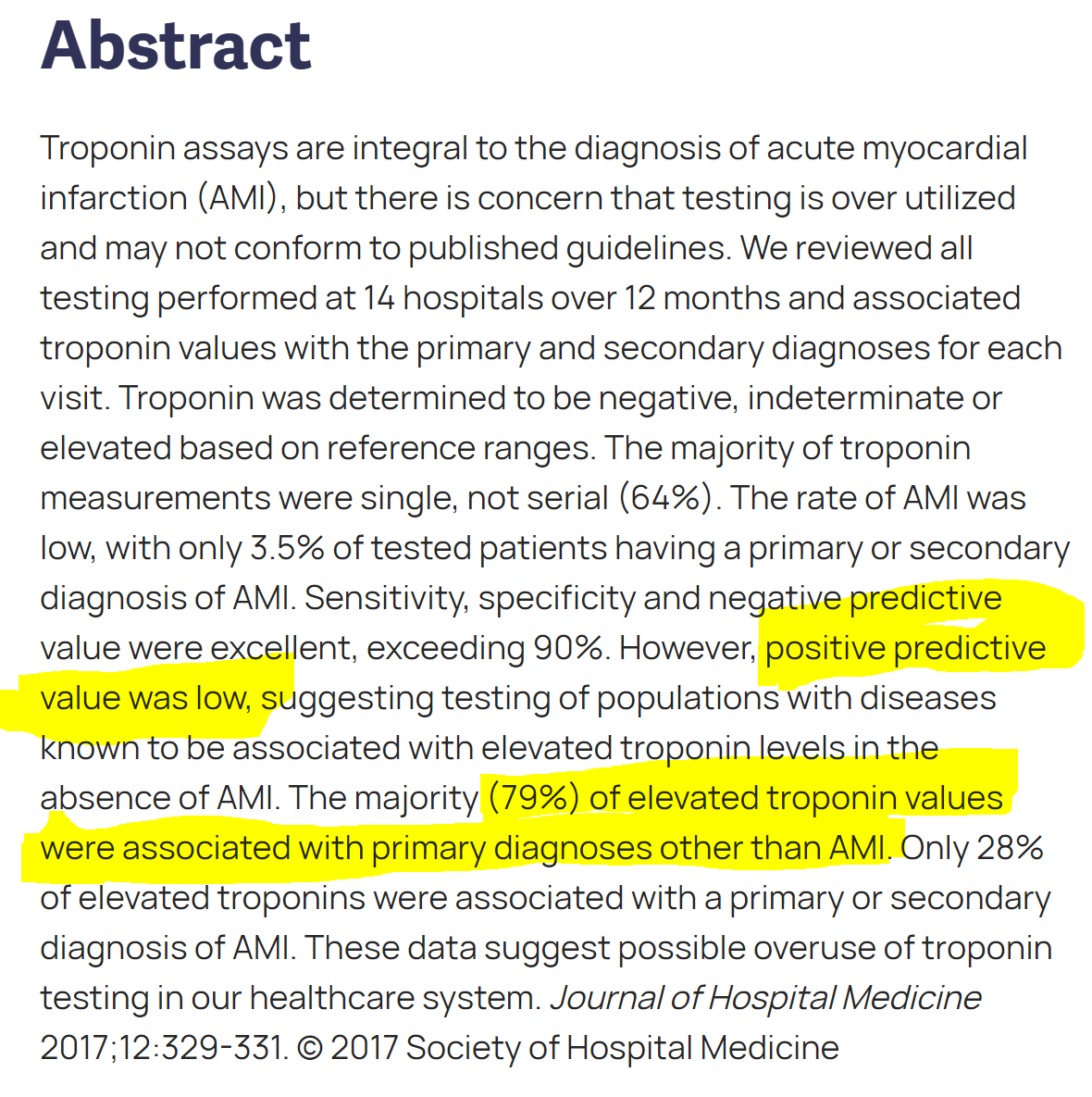Thank you to an anonymous person, for looking after her neighbour kindly.
Negative thanks for sending me a duff story.
So overall, net neutral. 8-)
(Details in thread that follows)
Negative thanks for sending me a duff story.
So overall, net neutral. 8-)
(Details in thread that follows)
For the education of the general public, this is how a scientist reads a news story.
Step 1. Look at the important bit of the story. https://www.biospace.com/article/releases/new-insights-into-how-covid-19-causes-heart-damage/">https://www.biospace.com/article/r...
Step 1. Look at the important bit of the story. https://www.biospace.com/article/releases/new-insights-into-how-covid-19-causes-heart-damage/">https://www.biospace.com/article/r...
So I wouldn& #39;t even read the rest of the abstract. I would want to know the source of this information, which the authors seem to take as an accepted fact.
Luckily this is science, so one has to show one& #39;s reasons. References are not linked in the abstract, but in the main paper.
Luckily this is science, so one has to show one& #39;s reasons. References are not linked in the abstract, but in the main paper.
From which I of course am now interested in the multiple independent references, showing this heart damage in PATIENTS.
Note that it was DYSFUNCTION in the abstract, but now just DAMAGE, which is completely different to a cardiologist.
Anyway I am getting really excited now.
Note that it was DYSFUNCTION in the abstract, but now just DAMAGE, which is completely different to a cardiologist.
Anyway I am getting really excited now.
It& #39;s not dysfunction, but rather damage, but it is in patients in these THREE clinical research studies.
Have a look at the three studies, and think about which is going to be the most compelling case for
OVER 50% of
PATIENTS (i.e. complete people, not bits of rat etc)
having SIGNIFICANT heart DAMAGE
OVER 50% of
PATIENTS (i.e. complete people, not bits of rat etc)
having SIGNIFICANT heart DAMAGE
Which will be most compelling?
Step 3.
Detailed evaluation of whether to read the sources.
Conclusion
Detailed evaluation of whether to read the sources.
Conclusion
Heh heh. Yes, life is just too short, I am sorry.
If people have accidentally linked to gibberish, which even a schoolchild can see are not relevant sources, what chance do you give them of doing the fancy biochemical, geney, proteiny whatnot correctly?
If people have accidentally linked to gibberish, which even a schoolchild can see are not relevant sources, what chance do you give them of doing the fancy biochemical, geney, proteiny whatnot correctly?
All look plausible now. Let& #39;s go through them.
6 is this one.
People with Covid bad enough to be ADMITTED TO HOSPITAL
Not just that. So bad that a QUARTER OF THEM DIED.
6 is this one.
People with Covid bad enough to be ADMITTED TO HOSPITAL
Not just that. So bad that a QUARTER OF THEM DIED.
Yes some of them did have elevations in CRP and Troponin, which are commonly found in patients with severe infections of almost any kind.
Not relevant.
Not relevant.
7: Mmmmmmm, not very persuasive to me.
CK, LDH, CRP, Troponin etc are often up in people who are so ill with (any) infection that they have to be admitted.
This doesn& #39;t make me want to do stuff to them.
CK, LDH, CRP, Troponin etc are often up in people who are so ill with (any) infection that they have to be admitted.
This doesn& #39;t make me want to do stuff to them.
In other words, in cardiology we are very used to seeing people who are ill enough in any way (particularly infection), to be admitted to hospital as an emergency, having high troponins, CRP etc in the blood.
This does not cause us to get worked up if we can possibly avoid it.
This does not cause us to get worked up if we can possibly avoid it.
I don& #39;t see any sign of 50% of people having heart DYSFUNCTION in these sources.
I therefore stopped reading the paper, effectively, after the first sentence of the abstract.
I therefore stopped reading the paper, effectively, after the first sentence of the abstract.
Sloppy in sentence 1, means why invest time in reading the rest, which I can& #39;t check, and would have to take on trust?
OK some people are getting unhappy, how can I not care about some people having troponin.
Well, we see it a lot.
Imagine 100 people come in to a hospital with bad Covid.
Well, we see it a lot.
Imagine 100 people come in to a hospital with bad Covid.
25 die
75 live. One of them, while skipping joyfully out of the hospital, pauses next to you.
"Dr, I am a bit worried, because I had troponin when I came in apparently."
75 live. One of them, while skipping joyfully out of the hospital, pauses next to you.
"Dr, I am a bit worried, because I had troponin when I came in apparently."
Your response:
"So you didn& #39;t die, then."
"No, I suppose not."
"That& #39;s quite good, then, isn& #39;t it?"
"Yes I suppose so."
"OK, goodbye!"
"No, I suppose not."
"That& #39;s quite good, then, isn& #39;t it?"
"Yes I suppose so."
"OK, goodbye!"
"But how come I don& #39;t have this troponin any more?"
"It means you are not nearly dead from Covid any more. Would you like to be nearly dead again? I hear there is a new strain available, and we are looking for volunteers to be reinfected."
"It means you are not nearly dead from Covid any more. Would you like to be nearly dead again? I hear there is a new strain available, and we are looking for volunteers to be reinfected."
Oddly they all seem to lose their academic interest in myocyte ultrastructural proteins at this stage, and return to joyfully skipping out of hospital, I find.
The world is full enough of real bad news without us adding more bad news for fun.
The world is full enough of real bad news without us adding more bad news for fun.
Sorry to be confusing but if you got to this point without seeing ref #7, click "Show this thread" below to see it. https://twitter.com/ProfDFrancis/status/1299420135397232643?s=20">https://twitter.com/ProfDFran...

 Read on Twitter
Read on Twitter
